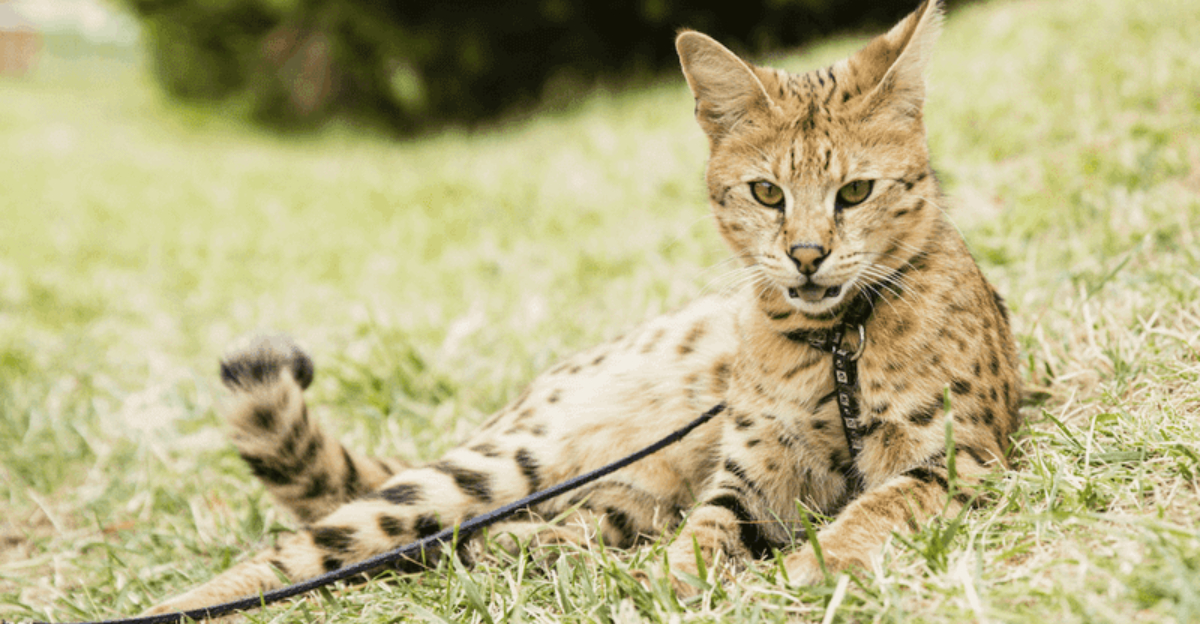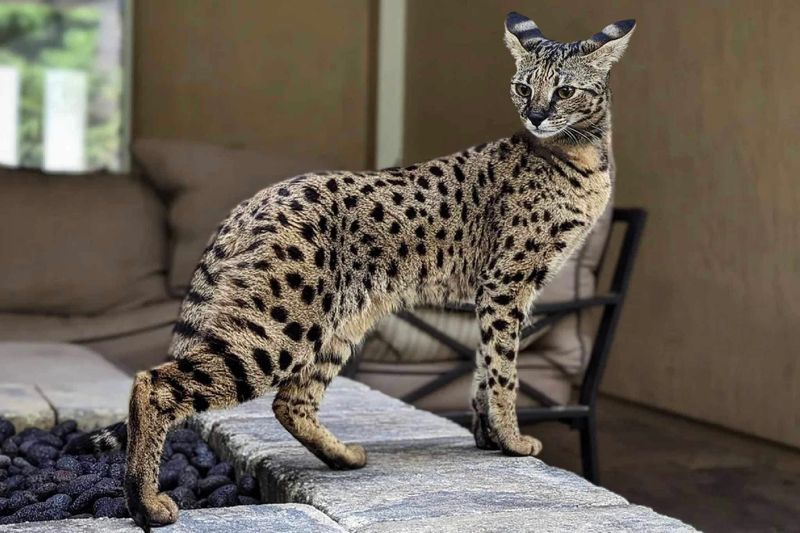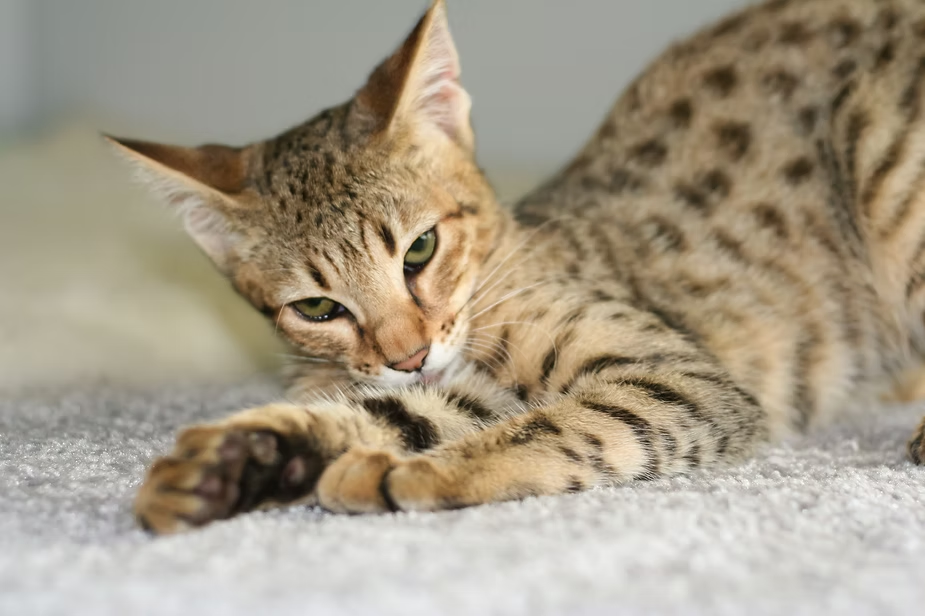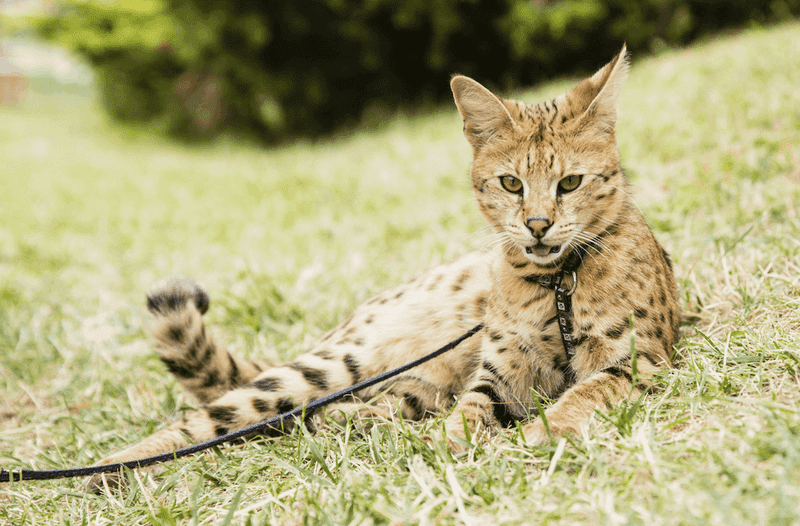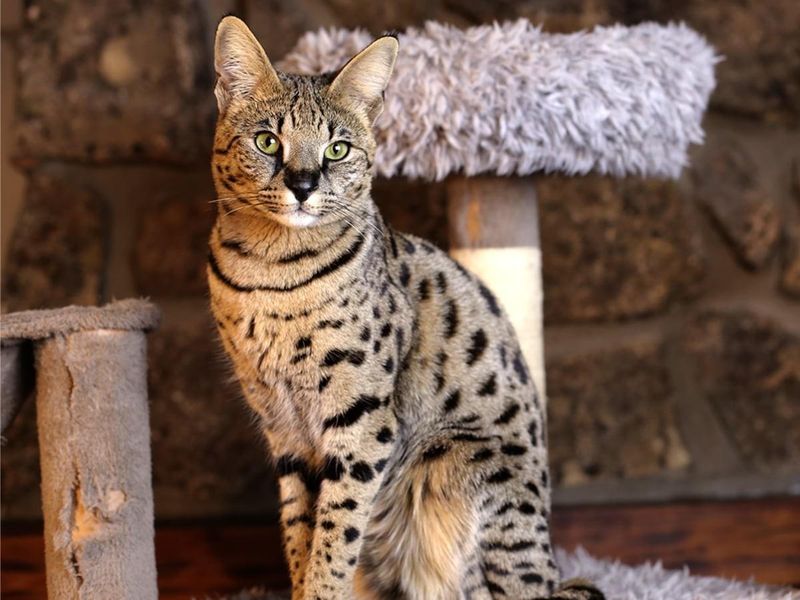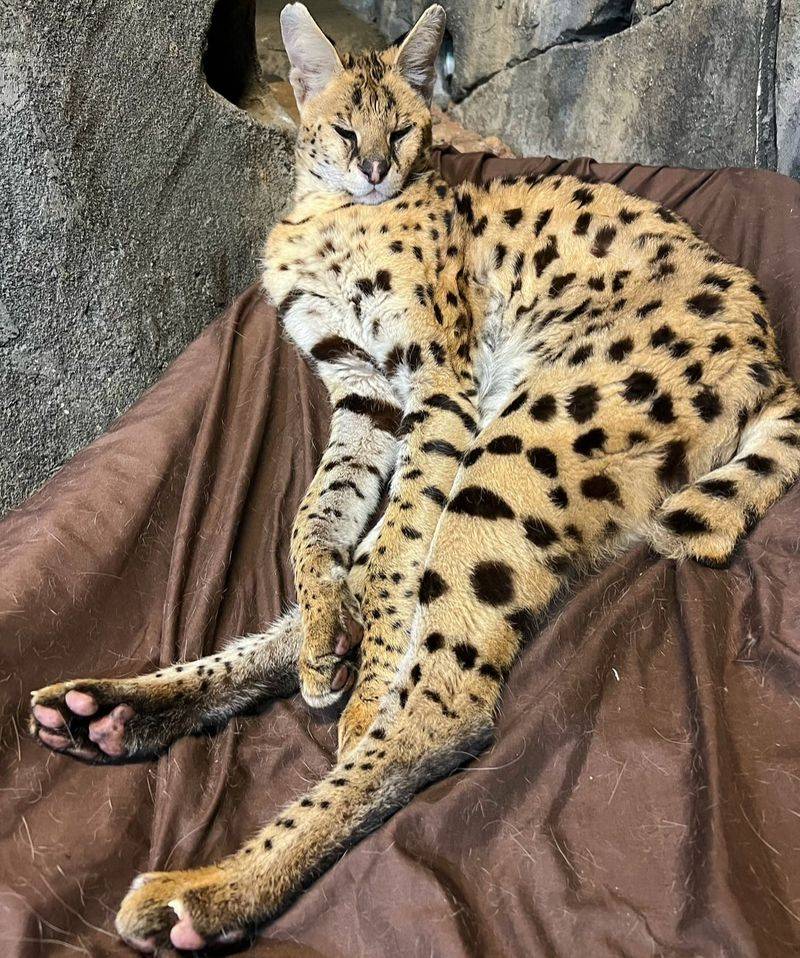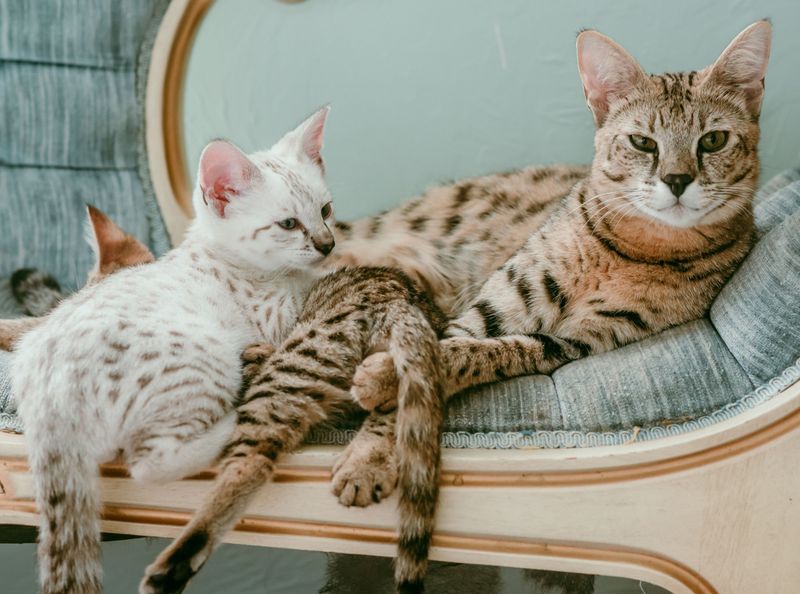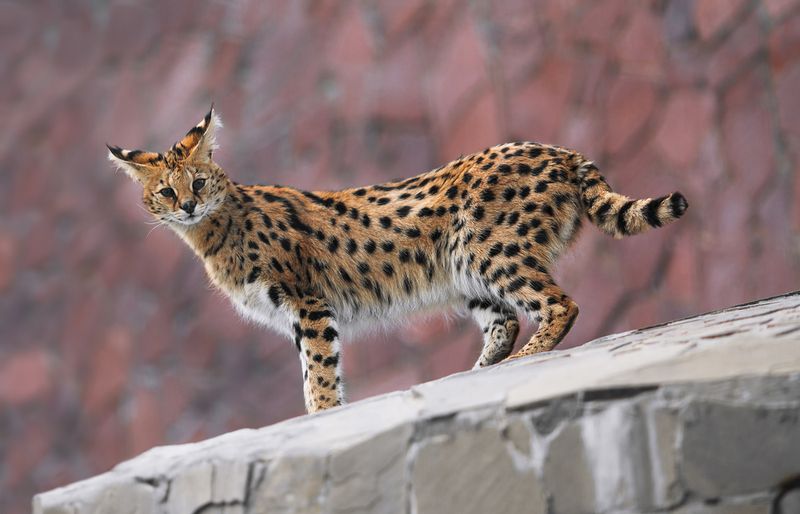📖 Table of Content:
Savannah cats, known for their striking appearance and energetic personalities, are the result of breeding a domestic cat with a wild African Serval. These hybrids are categorized by generations, labeled F1 through F5, with the earlier generations having a higher percentage of wild ancestry. As a result, their legal classification varies widely across the United States, leading to a patchwork of regulations that potential owners must navigate carefully.
Ownership laws concerning Savannah cats are often rooted in public safety concerns and animal welfare standards. Because early-generation hybrids can retain more wild behaviors, many states consider them exotic animals subject to strict regulation or outright bans. Conversely, later generations like F4 and F5 are more accepted as domestic pets due to their diluted Serval lineage and more predictable behavior.
Understanding the legal landscape for Savannah cats requires looking at how each state defines and regulates hybrid animals. Some states are lenient, treating these cats no differently than typical domestic breeds, while others enforce rigorous permit requirements or prohibit ownership altogether. The specific generation of the cat plays a significant role in determining whether it’s welcome in a particular jurisdiction. To help make sense of these differences, here is a closer look at the laws governing F1 to F5 Savannah cats across various U.S. states.
1. Understanding F1 Savannah Cats
F1 Savannah cats are the closest in lineage to their wild Serval ancestors, typically consisting of 50% or more Serval genetics. These first-generation hybrids are striking in appearance, with long legs, large ears, and an exotic coat pattern, often drawing admiration and curiosity. However, their behavior and temperament can be unpredictable compared to domestic cats, showing higher energy levels, strong hunting instincts, and a greater need for stimulation and space. Owners must be prepared for demanding care routines, including enriched environments and specialized diets, to keep F1s healthy and engaged. Due to these traits, F1s are often classified as exotic animals under many state laws, attracting regulations similar to wild species. They can form strong bonds with owners but are not always ideal for families with children or other pets. Prospective buyers should consider not only the animal’s unique needs but also the legal complexities before committing to an F1 Savannah.
Though slightly more removed from their Serval heritage, F2 and F3 Savannah cats still retain a noticeable degree of wild traits and therefore remain heavily regulated in many jurisdictions. These generations generally require experienced ownership, as they can still exhibit independence, wariness of strangers, and a preference for outdoor exploration. The legal distinction between F2/F3 and later generations often rests on behavior predictability and generational distance from the wild ancestor. Many states that prohibit F1 ownership will allow F2 or F3 Savannahs with a permit, usually requiring proof of lineage and evidence that the animal is safe to keep as a pet. Documentation from reputable breeders and registration with hybrid cat associations can support legal ownership in stricter states. These mid-generation cats represent a legal and behavioral gray zone, often prompting more scrutiny from animal control or wildlife authorities. Responsible ownership, proper socialization, and compliance with local laws are critical for those choosing to live with an F2 or F3 Savannah.
3. F4-F5 Savannahs: The Domesticated Hybrids
Unlike their earlier counterparts, F4 and F5 Savannah cats are generally accepted as domestic pets in most parts of the United States. These later generations have a significantly reduced percentage of Serval genetics and tend to behave more like conventional cats, albeit with higher energy and a curious, dog-like personality. Many owners report that F4s and F5s are affectionate, trainable, and well-adjusted to home environments, making them suitable for families and indoor living. Because their temperament and physicality are closer to standard domestic breeds, most states do not classify them as exotic or wild. This legal classification makes F4 and F5 Savannahs far more accessible to the general public, often with no special permits required. Nonetheless, they still require an active and attentive household that can keep up with their stimulation needs. Choosing an F4 or F5 generation allows for a balance between exotic allure and manageable ownership, making them the most popular choice for hybrid cat enthusiasts.
4. State Regulations: The Texas Example
Texas stands out as one of the more lenient states regarding Savannah cat ownership, with no statewide bans or permit requirements for any generation. In Texas, the classification of Savannah cats does not fall under the category of dangerous or wild animals at the state level, allowing residents to own F1 through F5 hybrids without facing legal obstacles. However, this freedom comes with a caveat: individual municipalities and counties have the authority to impose their own restrictions. Cities like Dallas or Austin may have local ordinances that conflict with the state’s open stance, meaning prospective owners must do additional research before bringing a Savannah home. This decentralized approach to regulation reflects the broader trend in exotic pet laws, where state permissiveness is sometimes curtailed by local concern. The state’s favorable laws have made it a hub for Savannah breeders and enthusiasts, encouraging the growth of the hybrid cat community. Even with supportive state laws, responsible ownership and awareness of municipal regulations remain essential for compliance.
5. Navigating State Laws in New York
New York presents a unique challenge for Savannah cat enthusiasts due to its bifurcated regulatory approach that varies sharply between urban and rural areas. Within New York City and several surrounding counties, ownership of Savannah cats is strictly prohibited, regardless of generation. These bans stem from concerns over public safety, potential ecological impact, and animal welfare. Outside of these zones, however, F5 and later generations are typically permitted without issue, offering some flexibility for upstate residents. Enforcement and regulation often fall under both state and municipal animal control departments, making it crucial for owners to understand the nuances of their specific locality. Permits are rarely issued for F1–F4 cats, and attempting to keep them in restricted zones can result in fines or animal confiscation. The disparity between city and state policies can be confusing and requires detailed vetting of local laws before acquisition. For residents of New York, legal Savannah cat ownership is possible—but only with careful attention to geographic boundaries and documentation.
6. Savannah Cats in Californian Law
California enforces one of the strictest policies on hybrid cats among large U.S. states, effectively banning ownership of Savannahs up to the F4 generation. The California Department of Fish and Wildlife considers these early-generation hybrids too close to wild species, classifying them as restricted animals requiring a special permit that is almost never granted for personal ownership. Only F5 and later generations are legally permitted as pets, and even these must be sourced from breeders who can provide documentation verifying the generational status. The state’s decision is rooted in concerns about potential threats to native wildlife, unpredictable behavior, and the risk of escape. As a result, California residents interested in Savannah cats are largely limited to the most domesticated versions. Breeders in the state must comply with strict breeding and sales regulations, ensuring that only legally permissible cats are offered. This rigid framework has led to a cautious but clear pathway for those determined to own a Savannah within California’s legal limits.
7. Challenges and Responsibilities of Ownership
Owning a Savannah cat, regardless of generation, brings with it a unique set of challenges that go beyond legality. These hybrid cats are known for their intelligence, agility, and strong personalities, all of which require engaged, informed, and consistent handling. Providing adequate space, mental stimulation, and socialization is essential to prevent behavioral issues, especially in higher-generation hybrids. Their exotic appearance and energetic nature may attract admiration, but they also necessitate commitment and lifestyle adjustments from their owners. Dietary needs can also differ from standard domestic cats, sometimes requiring raw or high-protein meals to maintain optimal health. Travel, veterinary care, and even housing leases may become complicated due to their hybrid status. Ultimately, the joy of living with a Savannah cat comes with the responsibility of ethical ownership, legal compliance, and ongoing care that respects the animal’s unique heritage.
